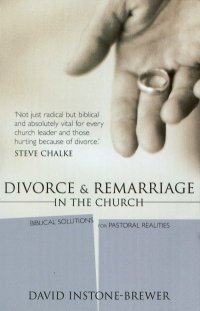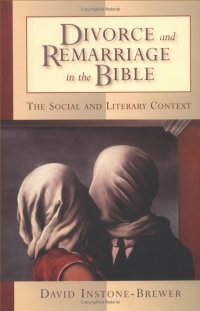

|
Questions & Replies about
Divorce and Remarriage | ||

|
Pastoral support doesn't really work by email, so if you need this, I'd encourage you to find a local fellow Christian or minister. Their personal views on this subject don't matter too much if they are good at listening, both to you and to God. David Instone-Brewer |

|
| Emailed question/comment: | ||
You have said that the marriage vow about obedience is optional. Does this mean that you are against male headship in marriage? |
||
Reply: | ||
|
Headship or equality is a matter to be decided by each couple, preferably before they get married, along with other important matters such as who looks after the money, whether they want children, and whose career determines where they should live. In NT times the subjection of women, children and slaves to the head of the household was a universally held ideal. This is comparable to our modern belief that democracy is better than monarchy or theocracy which are the only models of government in Scripture. Most Christians are happy to affirm democracy so long as there are certain limitations, such as respecting the rights of minorities, and secret voting so that individuals cannot be intimidated. In a similar way, Paul was willing to affirm his society's universal belief about family order, so long as there are certain limitations. Slaves should not be ill-treated, children should be respected, and married couples should "submit to each other" (Eph.5.21). He allowed the concept of 'headship' so long it is was like that of God being the head of Christ (1Cor.11.3) - ie an equality of purpose and importance. He agreed that man was created first (1Cor.11.8; 1Tim.2.13) but he pointed out that every man is born of a woman (1Cor.11.11-12). Modern Christians can no longer affirm the submission of slaves, but we can still affirm the headship of husbands over wives, so long as the wife chooses to obey in equality, just as Jesus chose to do the will of his Father. Some households work better when the male head of the house makes all the decisions, and some work better when the adult all have an equal say. The NT affirms both the headship model (within limits) and the equality model. It is up to each family to agree about what model they work best with, and outsiders should not demand that they follow one path or another. |
||
Read more emails & replies... | ||
Version
-for ministers
-for academics
-for everyone
Summary
Reviews